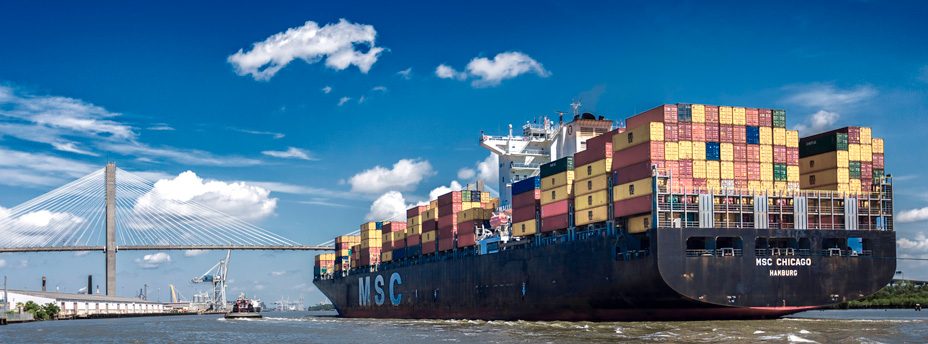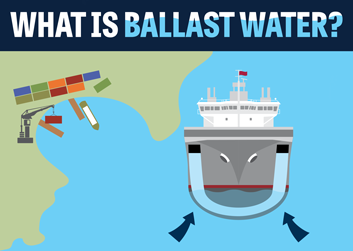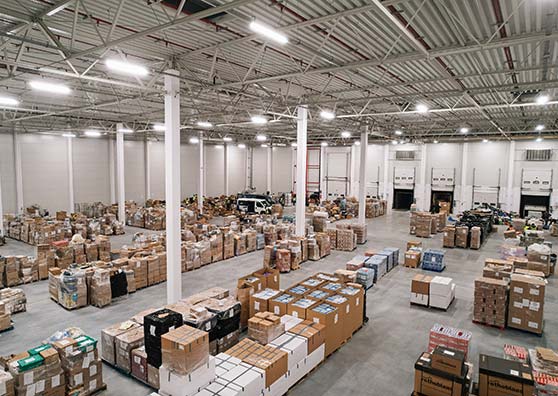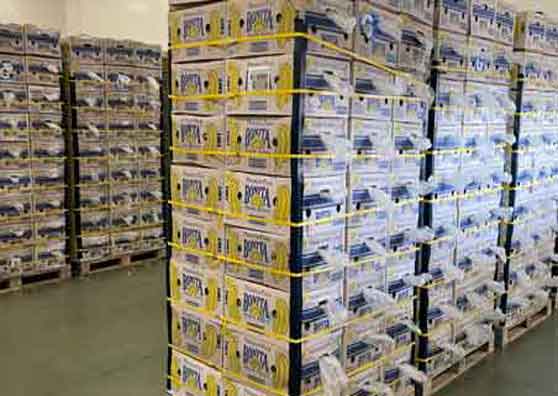
IFC’s financing will help MSC reduce the transfer of marine species that can travel in ballast water. © Joseph Rebello/IFC
 The list of things that are transported via container ships—clothes, coffee, building equipment, auto parts—is almost endless. But few would guess that an estimated 10,000 marine species, everything from microscopic plants and bacteria to animals such as mussels, crabs, and fish, are accidently transported this way too—every day.
The list of things that are transported via container ships—clothes, coffee, building equipment, auto parts—is almost endless. But few would guess that an estimated 10,000 marine species, everything from microscopic plants and bacteria to animals such as mussels, crabs, and fish, are accidently transported this way too—every day.
That’s because the hulls of container ships are filled with water to increase stability during travel. This ballast water is often carried great distances on shipping routes and released hundreds or thousands of miles from where it was collected. When this happens, some species—including pathogens—are introduced to foreign waters.
This can have serious ecological and economic consequences. The invasive species can compete with native organisms for food and space, negatively alter the habitat, or even transfer human diseases.
The increase of seaborne trade over the past few decades has exacerbated this issue, and the cost of these damages is estimated to exceed $7 billion every year.
To change this, Mediterranean Shipping Company (MSC), the world’s second-largest shipping line, has partnered with IFC. Our investments to lighten MSC’s ecological footprint through upgrades to its fleet are having an enormous environmental impact and also setting new benchmarks for the global shipping industry, which powers the vast majority of international trade.
Water Treatment for a Healthier Environment
In late 2015, IFC loaned MSC $70 million to help the company install 150 water treatment systems aboard its ships to eliminate the transfer of species that can travel in ballast water. Our financing will support treatment of the equivalent of 1,200 Olympic-sized swimming pools.
Besides protecting the marine environment and setting a leading example for the shipping industry, MSC’s project also demonstrates the effectiveness of the technology ahead of global regulations for treating ballast water that will become operative later this year.
After identifying the introduction of invasive species as a major issue confronting the international maritime community, the International Maritime Organization (IMO) created rules that established ballast water management procedures and included an international standard for ballast water discharge. When the standards take effect in late 2017, MSC will be one of the earliest adopters of ballast water treatment systems.
A Pioneering Partnership
Our support of MSC extends beyond this pioneering move to improve shipboard water treatment systems. In 2014, IFC helped MSC in a project to retrofit its container ships with new propellers and bulbous bows to improve engine efficiency and reduce greenhouse gas emissions. That deal is helping avoid as much as 1.2 million tons of carbon dioxide emissions per year. It is IFC’s single largest greenhouse-gas reduction contributor in the transport sector.
IFC has previously supported container terminals sponsored by a MSC subsidiary in Turkey, Brazil, Peru, and Togo.
To learn more about IFC’s work in environmental sustainability, visit www.ifc.org/sustainability.
Follow the conversation: #IFCimpact
Published in June 2017



